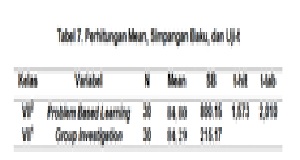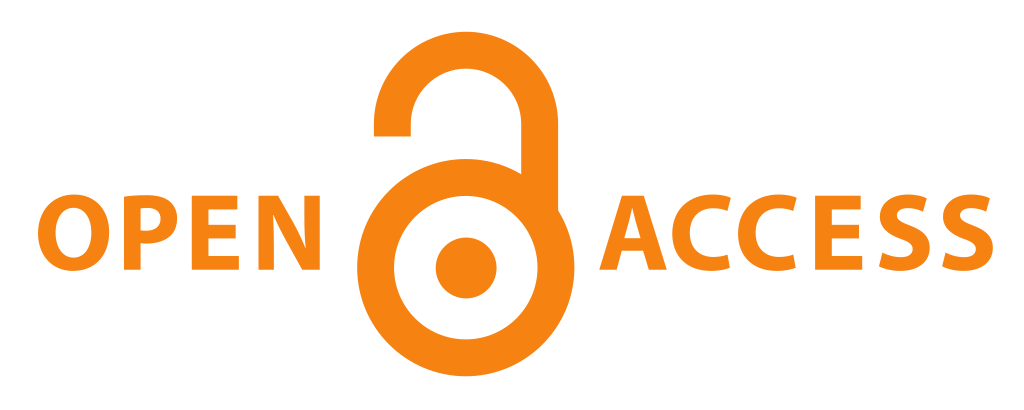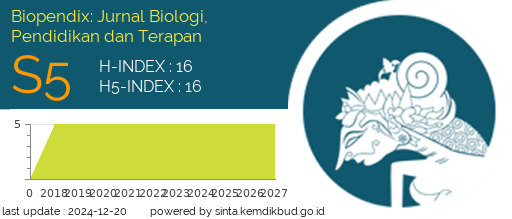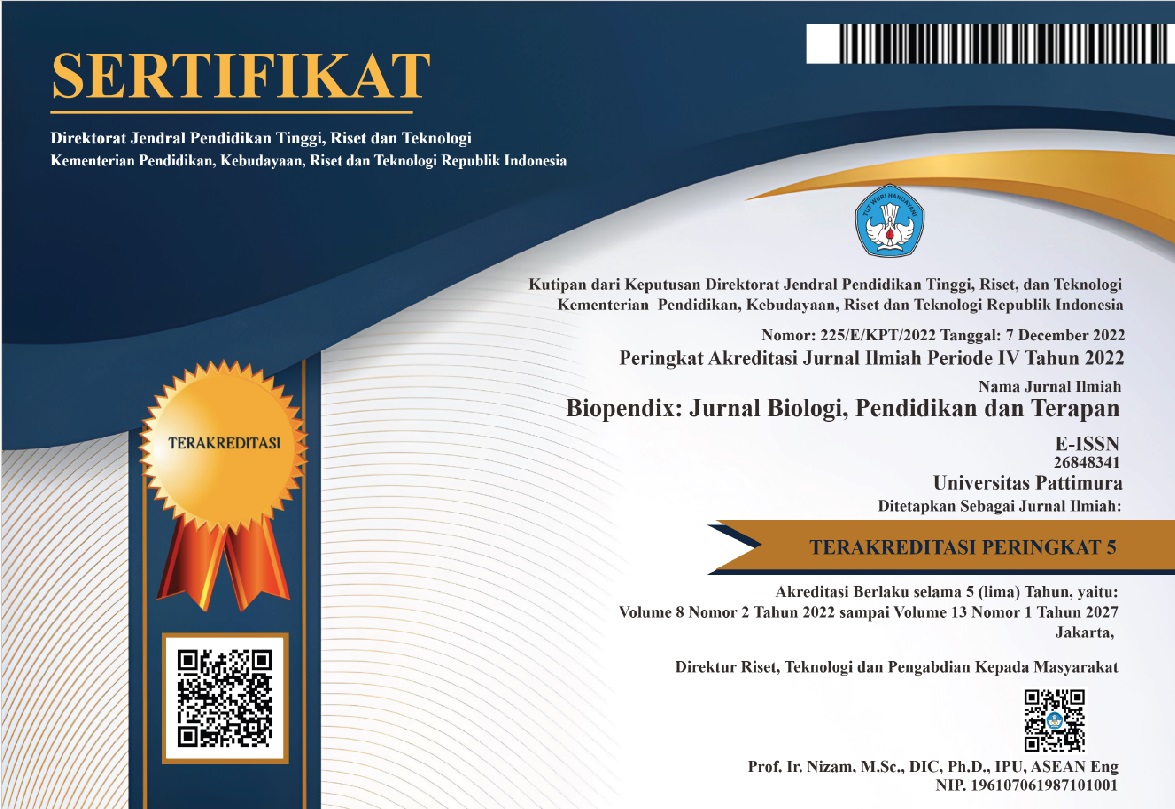PERBEDAAN HASIL BELAJAR IPA BIOLOGI MENGGUNAKAN MODEL PEMBELAJARAN PROBLEM BASED LEARNING (PBL) DAN GROUP INVESTIGATION (GI)
Abstract
Background: One of the causes of students' lack of understanding of a concept is teacher-centered learning and a lack of motivation from students in following the learning process. Then we need an innovative learning model that can help students in the learning process. To achieve learning objectives, teachers are required to be able to choose suitable learning models to be applied at an educational level.
Method: This research was conducted from January 14 to February 14, 2020 using descriptive methods, student learning outcomes are seen through the final value that is seen based on cognitive aspects (LKS), affective and psychomotor and pre-post test scores. Measurement data were analyzed using the t test formula.
Results: Based on the t test, obtained the results of tcount 1.573 and ttable 2.010, tcount <ttable, the hypothesis (H1) was rejected and (H0) was accepted.
Conclusion: There is no difference in the learning outcomes of students taught using the Problem Based Learning model and Group Investigation on the material of the human digestive system in class VIII SMP Negeri 7 Ambon, but there is an increase in learning outcomes after teaching and learning using the Problem Based Learning and Group Investigation models so the results of the t-test show that tcount <ttable (1.573 <2.010).
Downloads

Authors who publish with this Journal agree to the following terms:
- Author retain copyright and grant the journal right of first publication with the work simultaneously licensed under a creative commons attribution license that allow others to share the work within an acknowledgement of the work’s authorship and initial publication of this journal.
- Authors are able to enter into separate, additional contractual arrangement for the non-exclusive distribution of the journal’s published version of the work (e.g. acknowledgement of its initial publication in this journal).
- Authors are permitted and encouraged to post their work online (e.g. in institutional repositories or on their websites) prior to and during the submission process, as it can lead to productive exchanges, as well as earlier and greater citation of published works




 2
2






